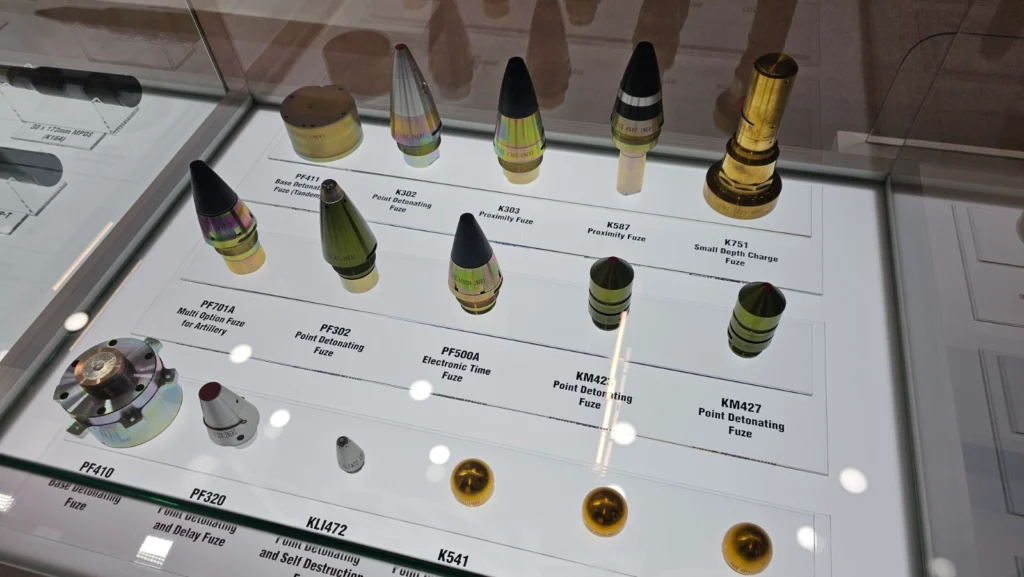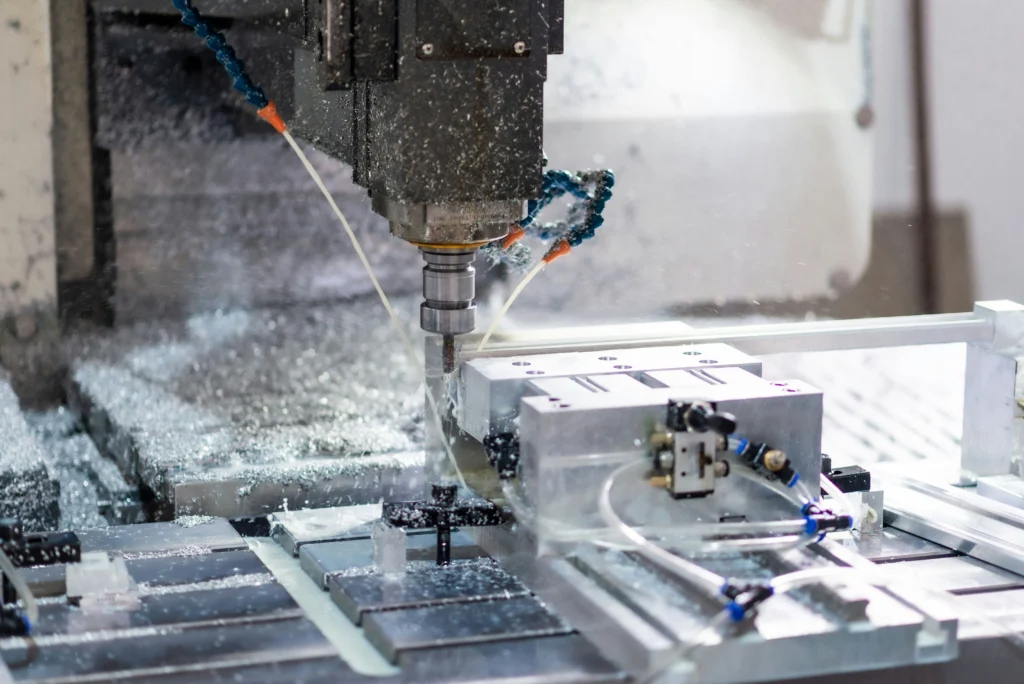CNC machining in the defense and military industry is an extremely demanding subject. There is no room for compromise in this industry – every component must meet the highest standards of quality, safety and reliability. From optical sights to missile guides to propulsion system components, all these parts are created through CNC technology.
Why are the requirements for suppliers so strict? The answer is simple. The safety of soldiers, the effectiveness of defense systems and, more broadly, national security depend on the quality of the components made. So let’s take a step-by-step look at what conditions a supplier must meet in order to operate in this area.
Table of contents
The role of CNC machining in the defense and military industries
CNC machining in the defense and military industries serves as the foundation for the production of modern weapon systems. It allows components with highly complex geometries to be manufactured while maintaining repeatability and accuracy on the order of micrometers.
Examples of parts produced by this method:
- Components of optics bodies and targeting systems,
- Missile guides and weapon mounts,
- Parts of transmissions and drives in armored vehicles,
- Components of drones and radar systems,
- ballistic shielding components.
Compared to other industries, the defense industry is characterized by a much higher level of requirements – both technical and formal. While in automotive applications tolerances of 0.01 mm are often sufficient, in the case of military technology we are talking about as much as ±0.005 mm and the need to maintain them in every piece.
Read more about CNC machining in our article ‘‘What is CNC machining?’’.

Technical requirements for suppliers of CNC mechanical components for the military
Manufacturing for the military sector requires access to the most advanced machining technologies. Suppliers must demonstrate not only a modern machine park, but also experience in working with difficult materials.
Materials used in the military industry:
- Titanium alloys – lightweight and corrosion-resistant, used in aviation and armored vehicles, among other applications.
- Inconel and other nickel alloys – resistant to high temperatures, used in engines.
- Hardened steels – providing exceptional mechanical strength.
- Composites and engineering plastics – used in lightweight structures and enclosures.
Tolerances and dimensional control:
Military components require precision at the micrometer level. In practice, this means that each piece must meet the same criteria, and the production process is continuously monitored using CMMs (Coordinate Measuring Machines).
Advanced machining technology:
- 5-axis CNC machining – essential for complex shapes.
- Production automation – greater repeatability and less risk of error.
- 3D quality control – quick and accurate checking of part dimensions.
Quality standards and certifications in CNC machining for the military
Technology alone is not enough. To operate in the defense industry, a supplier must have the appropriate quality certifications. They are the ones that confirm that manufacturing processes comply with strict international standards.
The most commonly required standards are:
- ISO 9001 – a general quality management standard,
- AS9100 (or AS9100D) – an extension of ISO 9001 for the aerospace and military industries,
- AQAP – the NATO quality assurance system used for defense contracts.
- For international contracts, there may also be ITAR or DFARS compliance requirements.
In practice, this means full production traceability: each batch, and even a single component, must have documentation to prove compliance. SPC (Statistical Process Control) reports are also often used to show process stability over time.

MSWiA concession – the key to working with the defense industry
In addition to the technical and certification requirements, a supplier operating in Poland must have an appropriate license issued by the Ministry of Internal Affairs and Administration. Without it, there can be no legal production or marketing of military components.
Why is the concession so important?
- It gives the right to manufacture and trade weapons, ammunition, explosives and technologies for military or police use.
- It is a guarantee that the company meets the highest security standards, both in terms of data protection and infrastructure.
- It is a prerequisite for cooperation with the Ministry of Defense, the police, as well as global arms companies.
At SIM Gdynia, we obtained our MIA license (No. B-090/2025) on July 4, 2025. The process of obtaining it is not a simple one – it is extremely restrictive and requires compliance with a number of rigorous standards, both in terms of safety and production organization, as well as in the CNC machining processes themselves. This includes quality control at every stage, full traceability of parts and the use of advanced technologies in line with the requirements of the defense industry.
For more on the subject of our obtaining a license, see our article ‘’SIM Gdynia has obtained a license for the production of weapons and military technology’’.
Security and confidentiality in military production
Protecting information and procedures is also crucial in the military industry. Design documentation, technical drawings or material data are classified information that must be secured at the highest level.
Therefore, suppliers are required to:
- Implement systems to protect classified data,
- Conduct production in controlled access areas,
- Sign NDA (Non-Disclosure Agreement) agreements with customers,
- Undergo security audits conducted by military institutions or customers themselves.
It is worth noting that today security is not only a matter of physical protection of the plant, but also cyber security. IT systems handling production and documentation must be resistant to hacking attempts and data theft.
Summary of requirements for suppliers of CNC components to the military
CNC machining in the defense and military industries is an area where technology, precision and formal regulations meet. In order for a supplier to operate in this industry, it must meet stringent requirements – from precision machining of difficult materials, to quality certification, to MSWiA licensing.
Such a high level of requirements is no accident. It is what guarantees that the resulting components will be reliable, and that their use in combat conditions will not disappoint soldiers. In this context, restrictiveness is not an obstacle, but a necessity – because in the defense sector the margin for error simply does not exist.
